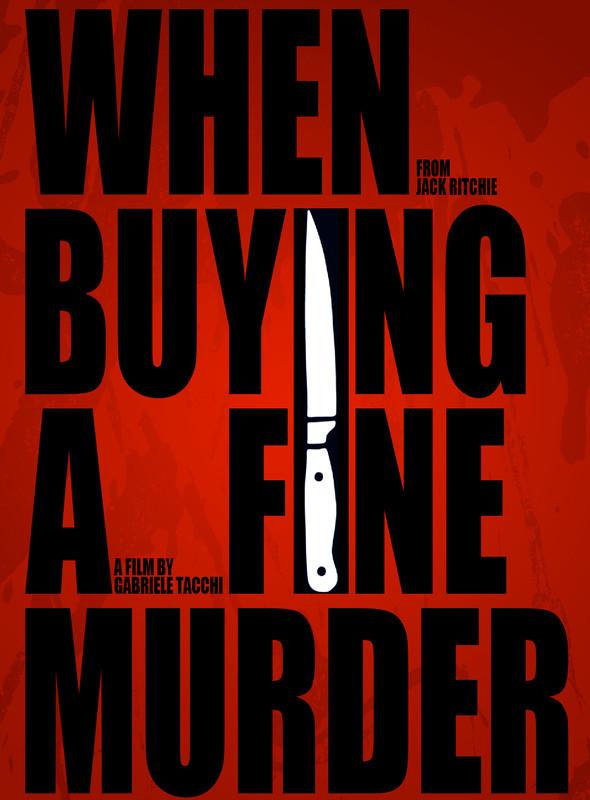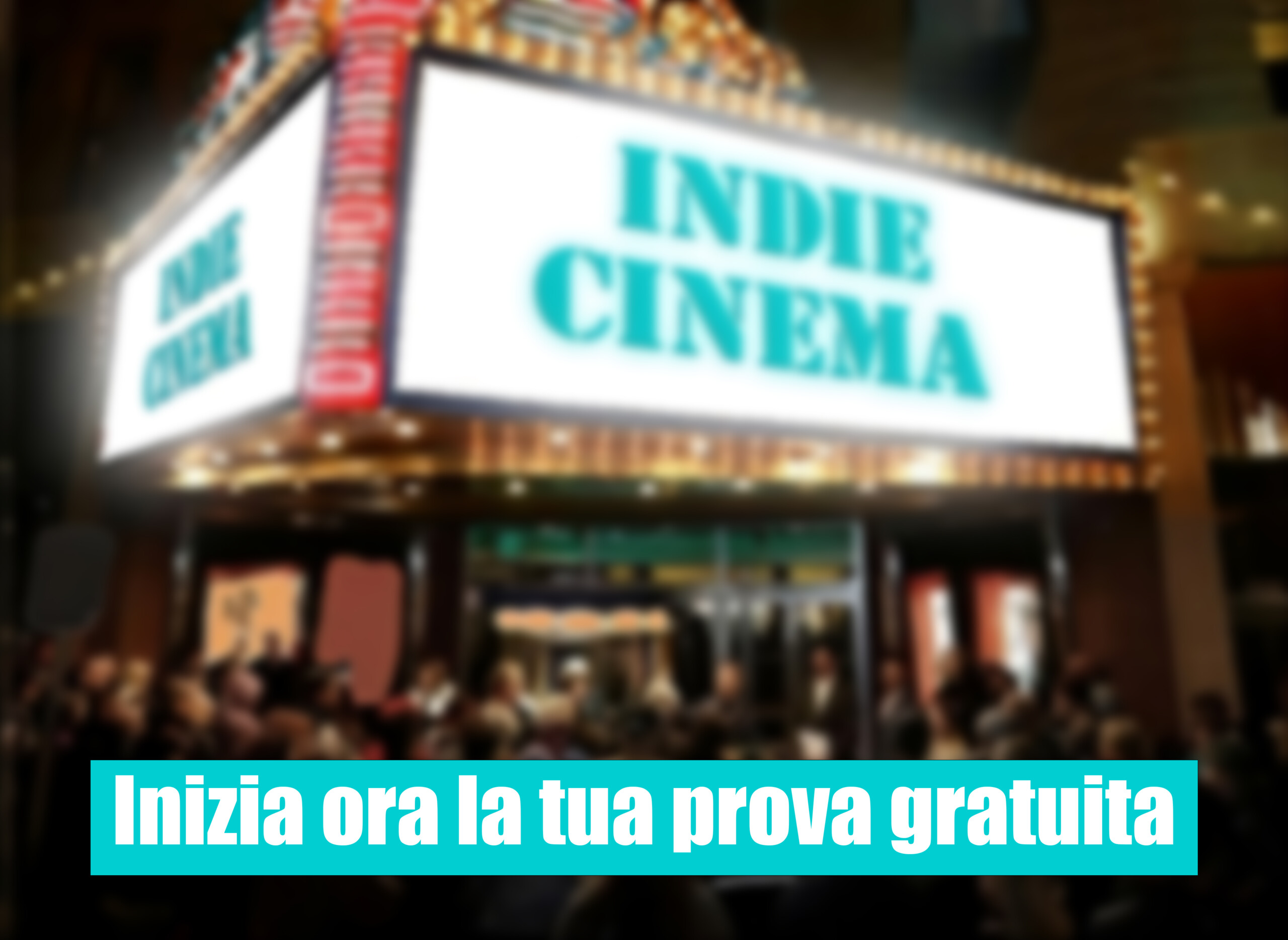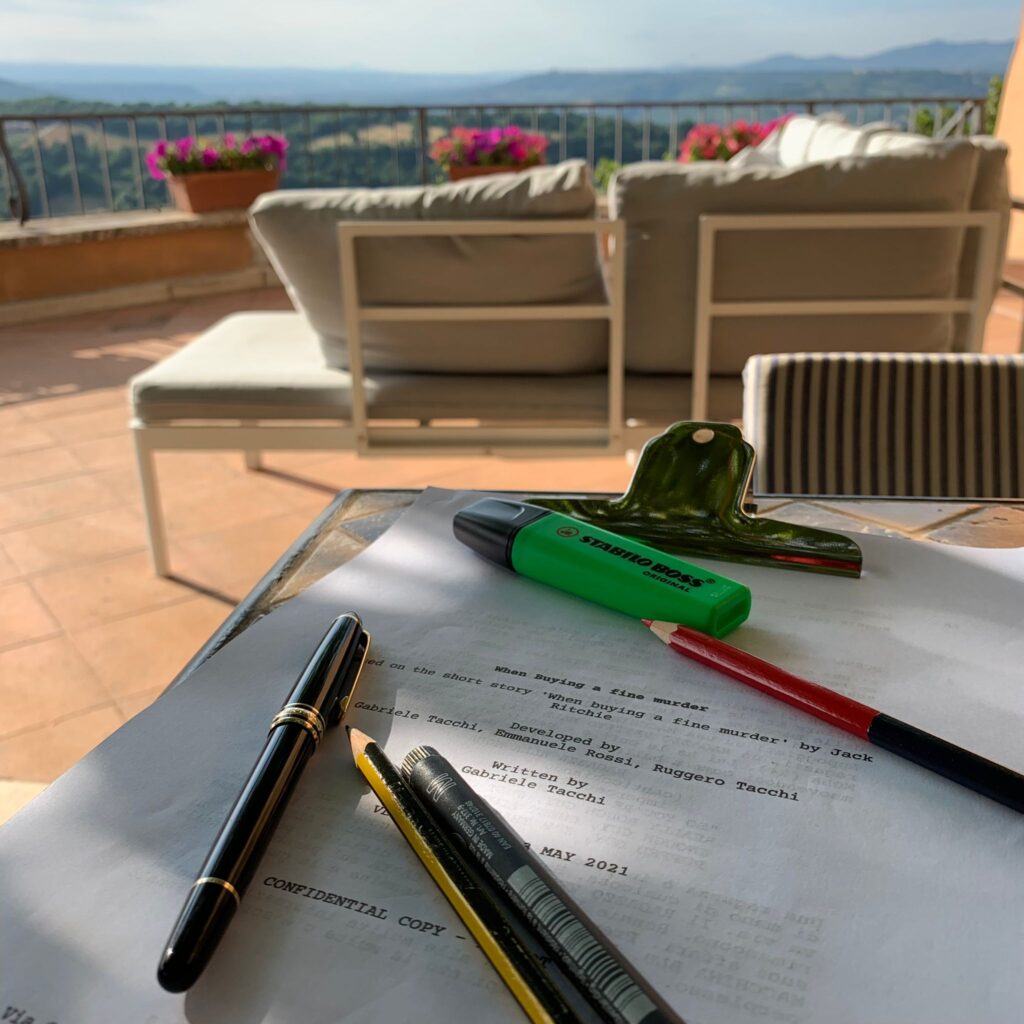
Speaking with the director of “When Buying a Fine Murder”, in competition at the third edition of the Indiecinema Film Festival
Indiecinema Film Festival will soon dedicate (on Sunday 23 June 2024) a special evening, at La Bottega dell’Attore in Rome, to some of the best works attributable to genre cinema, which characterized the latest selections of our film festival.
And among these certainly could not be missing When Buying a Fine Murder by Gabriele Tacchi, an eclectic filmmaker who we discovered with original short films capable of carving out a significant space for himself in the fantasy field, such as Magenta for example. But it is more specifically about When Buying a Fine Murder, in competition at the third edition of the festival, that we spoke with him.
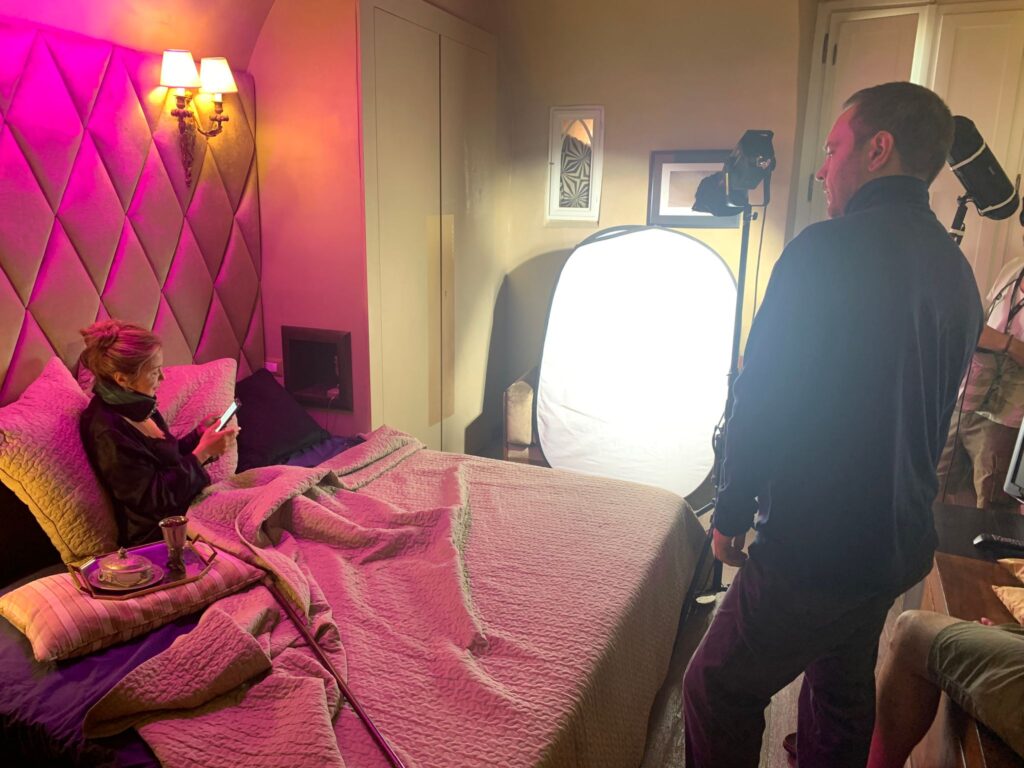
Passion for genres and cinematographic models
From all the works created so far, including “When Buying a Fine Murder”, it can be deduced that what fuels your passion for cinema, Gabriele, are certain genres more than others: detective stories, horror, fantasy. If the impression is right, what can you tell us about it? In terms of authors and individual films, is there any source of inspiration that you would like to highlight?
I like all genre cinema. Certainly not only that, but I find genre movies, detective stories, horror and fantasy, a way to tell something different from reality, which in itself, in my opinion, is not interesting. A fixed point of reference for me is Hitchcock because he also tells realistic situations, if desired, but places them within a narrative of non-realism. He himself says that the important thing is to use images to tell stories, because the cinema medium was born with images. This interests me. Pay attention to a detail, a rhythm, a sound, an artifice created for the occasion. Rear Window or Psycho or The Birds always comes to mind, to name the most famous, which can also be seen without sound and the cinematic experience is not affected. In this regard, I am reminded of another experiment done a few years ago by Soderbergh in which he took the first Indiana Jones, treated it in black and white and played background music, removing all the original audio from the film. In this sense we understand Spielberg’s extraordinary ability to tell stories through images. So for me, as a director, Spielberg is also one of the Greats to follow. The last one I feel like disturbing is Scorsese who always tells very realistic stories, but does so with an intense cinematic narrative full of images, camera movements and sometimes bizarre shots. The camera moves everywhere and in my opinion this is fundamental.
Coming now more specifically to the short “When Buying a Fine Murder”, both on a stylistic level and in narrative choices there are elements that made us think a little of the Coens, a little of Tarantino, a little of Soderbergh and a little also to Guy Ritchie, for example for those quick and drumming assembly connections. How did you influence the timing and style of the narrative here?
I don’t know if I’m happy that the references are so obvious, I was hoping to have managed to disguise them more. Obviously mine is a joke… the rhythm and narrative style are absolutely a mix of multiple authors, sometimes used in a completely blatant way. The “swooshes”, the “tilts”, the overlays, the frenetic editing, are all elements of that cinema that never takes itself too seriously, aware that the authorship with which it tells the stories is much stronger than the stories themselves . I focused a lot on the rhythm of the narrative, having also mixed genres, precisely to facilitate a captivating narrative process not so much to entertain, but precisely to visually stimulate a narrative progression that at the end of the film can lead the audience to say “I want more.
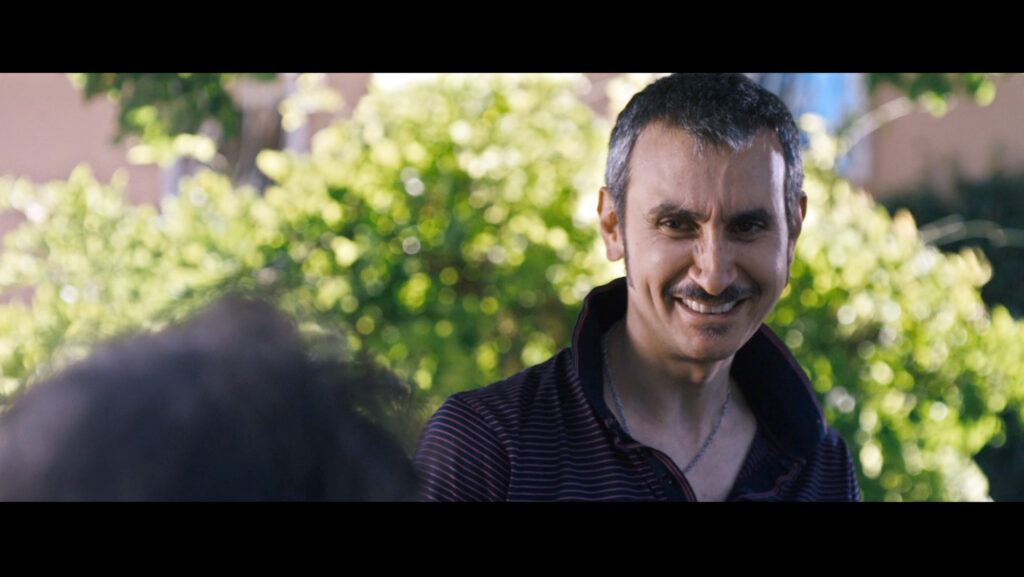
Short movie’s genesis and something upon style
Taking a small step back, how did this little film come about? From the credits we noticed that there is a story by Jack Ritchie behind it and that you obtained permission to shoot it…
Yes. I read a collection of short stories by Marcos y Marcos which brought Jack Ritchie back to Italy after a long time. And many of these stories bewitched me. When buying a fine murder was the most adaptable in my opinion with an effective opening sentence that immediately bewitched me «It’s the first time they’ve hired me to kill myself».
Through the publisher I found who owned the international rights and we agreed on non-exclusive international rights for the creation of a short film. This type of specification allowed us to acquire the rights, otherwise the financial commitment would have been decidedly more burdensome. However, I advise you to recover this Marcos y Marcos title «The big day».
It seems to us that the work carried out on the credits, together with certain editing solutions and the use of overlays, computer graphics, etc., etc., combines with the dialogues in English to give such a cinematographic product that international stamp, whose appeal goes very much in the direction of Anglo-Saxon culture. How do you position yourself in relation to these elements?
It should be noted that as I am a child of the 80s, I have experienced the full extent of modern American and Hollywood cinema. Compared to the names I mentioned earlier, let’s say that I got to know American cinema sooner than Italian cinema. However, it is not out of xenophile snobbery that I made this decision. I did it for a question of numbers and festivals. There are more international festivals and the question of selection is easier if the language is English.
However, I don’t want to diminish the narrative issue. I always like to mix genres, colours, practical and visual effects, so I also like to mix languages and, as far as possible, cultures. It’s clear that to date I still haven’t managed to do a job of cultural integration, but it’s one of my goals to take cinema outside its borders, actually trying not to place boundaries on the cinematographic medium.
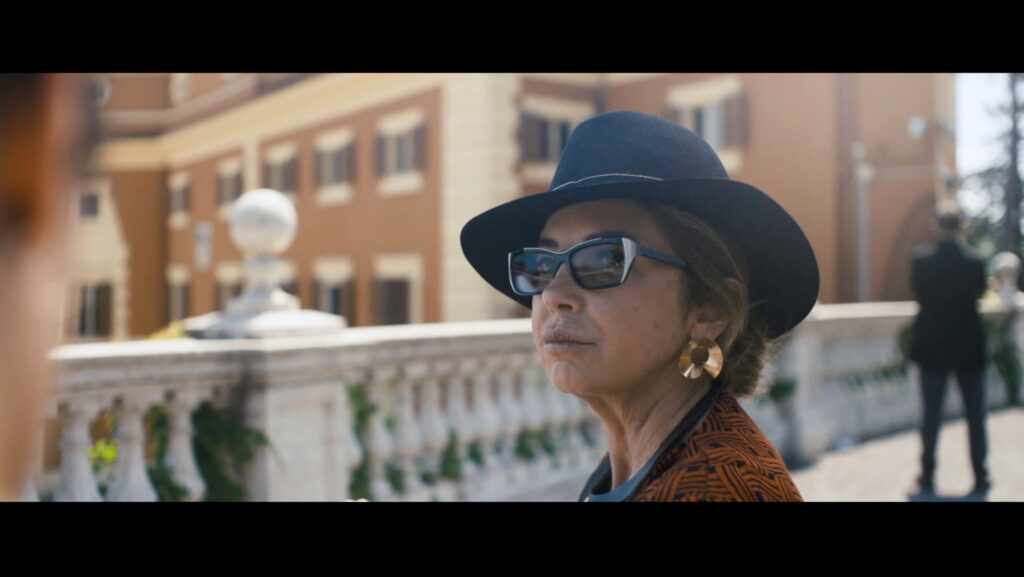
Casting, location, original soundtrack
How did the casting happen, also regarding the linguistic choice, which we mentioned before?
The casting actually happened quite simply. I’m an actor and I know the world of actors, so I asked actor colleagues and friends if they had any names to suggest. . I must say that at the beginning I wrote the protagonist thinking about an actor friend of mine, who however is from Abruzzo and didn’t feel like acting in English. It reminded me a bit of the episode of Amélie in which the director initially hired an Anglo-Saxon actress who then backed out due to language issues. As an actor, I understand that acting in a language that doesn’t belong to you is frustrating. In projects like this, speed is very important and in hindsight I thank that friend of mine for not having mentioned it, both for the issue of speed as I was saying, but then because it allowed me to meet Marco Quaglia who is an actor with whom I am continuing to work. I had a great time working with all the actors. Maddalena Vallecchi Williams was the protagonist of my first feature film which is now in the post-production phase. The problem with actors and actresses is that they lack money… because when you find such good actors, you, being a director, just want to work on new things with them.
How did you move, however, upon the locations and the soundtrack?
The locations were a bit forced as we were under a pandemic, in a lighter moment, but with the restrictions that we all know. So I adapted the script together with Emmanuele Rossi and Beatrice Belli, the producer, in order to have the main scenes all in one location. We rented a villa in the Viterbo area which also had some alternative spaces in the immediate vicinity. So we used everything usable, including the beauty of Rome as a natural set.
For the soundtrack I used the master composer Filippo Stefanelli from whom I asked even complicated things, because the desire to have multiple genres together remained even in the indications I gave him. I think he did a good job. Even now he is composing for my film.
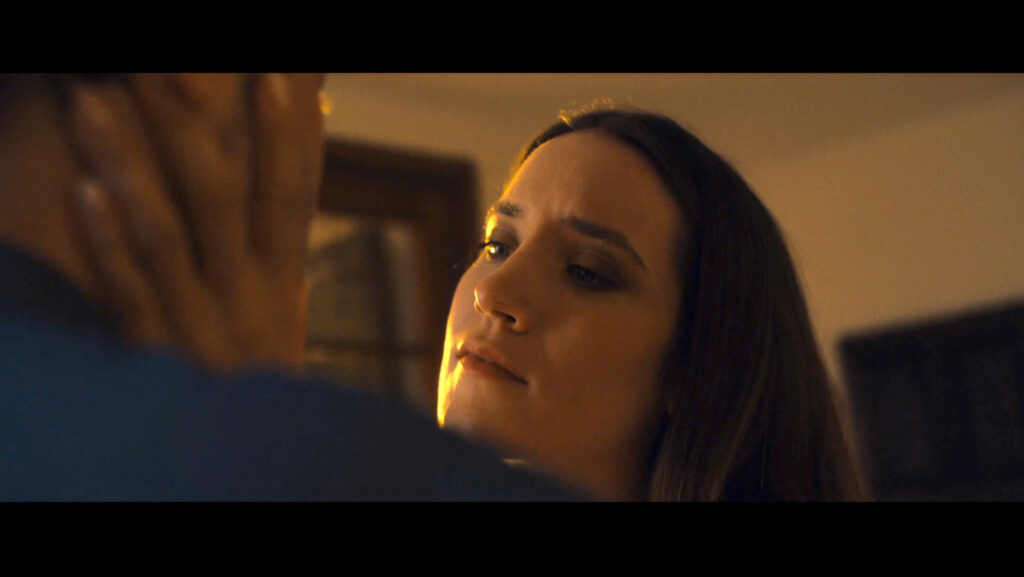
To work as “indie”
For a short, “When Buying a Fine Murder” lasts over half an hour and some narrative points still appear compressed, almost as if this project was tending towards a feature film or towards a possible serialisation. Have you ever thought about it in these terms?
Absolutely yes. But as I said before, I got very tight stipulations from the holder of Ritchie’s rights. I couldn’t leave open any possibility for seriality or exceed a certain running time, which I think was 40 minutes. This is because obviously the rights acquired would have had a different amount in economic terms. With short films you don’t monetize, with feature films you do.
To script the story you worked together with the writer Emmanuele Rossi, your partner in various other ventures. How was this collaboration born and how is it developing?
Emmanuele is a member of family. You said well. We are the opposite of each other and it perfectly represents Galaxia, the production group I created. I base everything on the combination, on Yin and Yang, on the good and bad wolf, on black and white, on good and evil… in short… you find the symbolic derivation that you like best.
He is a fantastic writer. One of the most amazing pens I’ve ever come across. We are trying to work on getting his books out. You yourself have read one. Now we’ve released another one and throughout the rest of next season there will be three more.
Finally, we’ve seen you move as an independent in cinema, theater and even publishing… how hard can it be to do this here in Italy? And where does the satisfaction come from?
In Italy it’s not hard… it’s impossible. It’s religious faith stuff. You have to believe a lot in what you do and the satisfactions don’t really come. You have to create them yourself… you have to maneuver them and make them arrive, because you will never be able to compete with the large numbers of the large publishing houses that push products that are sometimes of dubious artistic quality, but have a strong popular or intellectual impact. Here too, it is not snobbery, but a reality. With Emmanuele and my brother Ruggero, another founding member of Galaxia, we joke that we live in the circle of the damned and that we are doing all the rounds to try to get out and get to heaven… or reign in hell. It depends on what we decide.
A vision curated by a filmmaker, not an algorithm
In this video I explain our vision
